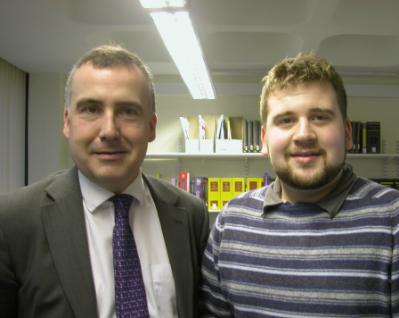EU–India Free Trade Agreement

Dr Sangeeta Khorana
15 January 2008
Tuesday 15 January 2008
Aberystwyth academic to study EU–India Free Trade Agreement
Dr Sangeeta Khorana of the School of Management and Business at Aberystwyth University has been commissioned by the British High Commission, India under the GOF / Economic Governance Programme of the Foreign and Commonwealth Office to identify the existing Non Tariff Barriers (NTBs) to trade in the UK and evaluate the effects of the proposed EU-India Free Trade Agreement (FTA) on bilateral trade with special focus on the goods sector (leather and footwear, textiles and clothing).
Over the last few years the EU has been pursuing a number of free trade agreements with a variety of countries. India too has recently signed free trade agreements with Sri Lanka, Singapore, Nepal and Bhutan. The anticipated time frame for the completion of the EU-India trade agreement, which will see 90% of import tariffs reduced to zero, is two years with a target date for implementation set at 2010-2011.
Dr Khorana will be working closely with the Indian Council for Research on International Economic Relations (ICRIER) on this study which attempts to identify existing non tariff trade barriers faced by the Indian exporters in leather, footwear, textiles and clothing, which account for nearly one-third share of all the total Indian exports to the UK.
Dr Khorana said: “The major stumbling blocks for a successful outcome to all trade negotiations are not the removal of tariffs (import taxes) per se but identifying and quantifying the effect of the so called non tariff barriers (NTBs).
“Given the existing differences in the regulatory and administrative mechanism, an identification of the NTBs is important if the partner countries are to benefit from trade liberalisation under any free trade agreement.
“The research has a two fold focus: first, it will identify the existing NTBs through series of mutual interaction and consultation, both in India and the UK, with the exporters/importers, policy makers, potential investors and other key stakeholders with the objective to raise awareness of the existing NTBs faced by the Indian manufacturers exporting to the UK.
“Secondly, the study will suggest means to achieve a flexible mediation mechanism to reduce the impact of the NTBs on bilateral trade so that businesses in the UK and India mutually benefit from this trading arrangement and reap the benefit of enhanced market access under the proposed FTA”, she added.
Dr Khorana is a lecturer in Economics and joined the Aberystwyth School of Management and Business in January 2006. Originally from New Delhi, she completed a Masters degree at the World Trade Institute in Switzerland and gained her PhD from the University of St Gallen, Switzerland. She is an authority on market access and trade barriers and has worked on trade related research for the Swiss Government.
The project “Convergence towards Regional Integration between the EU and India: Trade implications for India and the UK” has been funded by a grant of about £34,600 from the British High Commission India.



